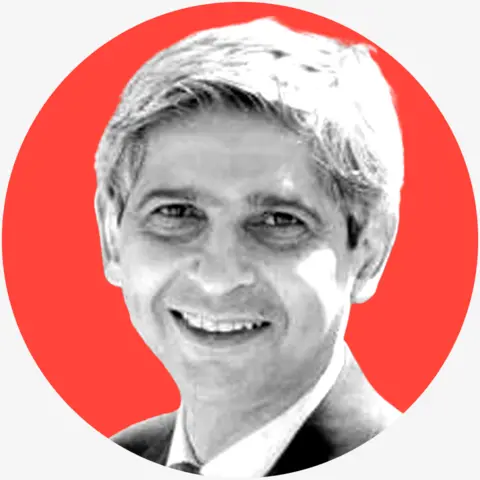
Special Correspondent, BBC Persian
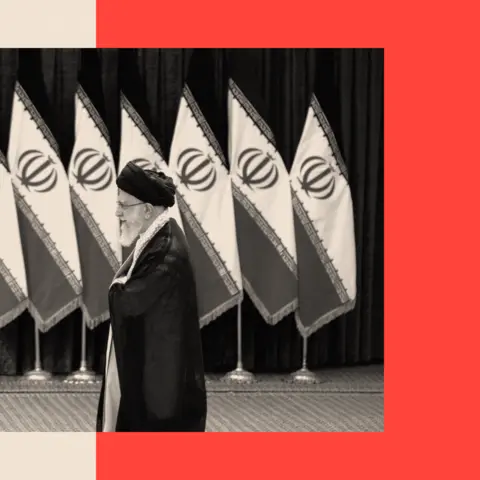 BBC
BBCAfter spending nearly two weeks in a secret bunker somewhere in Iran during his country’s war with Israel, the supreme leader, Ayatollah Ali Khamenei, 86, might want to use the opportunity of the ceasefire to venture out.
He is believed to be holed up, incommunicado, for the fear of being assassinated by Israel. Even top government officials apparently have had no contact with him.
He would be well advised to be cautious, despite the fragile ceasefire that the US President Donald Trump and the Emir of Qatar brokered. Though President Trump reportedly told Israel not to kill Iran’s supreme leader, Israeli Prime Minister Benjamin Netanyahu did not rule it out.
When – or indeed if – he does emerge from hiding, he will see a landscape of death and destruction. He will no doubt still appear on state TV claiming victory in the conflict. He will plot to restore his image. But he will face new realities – even a new era.
The war has left the country significantly weakened and him a diminished man.
Murmurs of dissent at the top
During the war, Israel quickly took control of much of Iran’s airspace, and attacked its military infrastructure. Top commanders of the Revolutionary Guard and the army were swiftly killed.
The extent of the damage to the military is still unclear and disputed, but the repeated bombings of the army and revolutionary guard bases and installations suggests substantial degradation of Iran’s military power. Militarisation had long consumed a vast amount of the nation’s resources.
Iran’s known nuclear facilities that earned the country nearly two decades of US and international sanctions, with an estimated cost of hundreds of billions of dollars, are now damaged from the air strikes, although the full extent of this has been hard to assess.
What was it all for, many are asking.
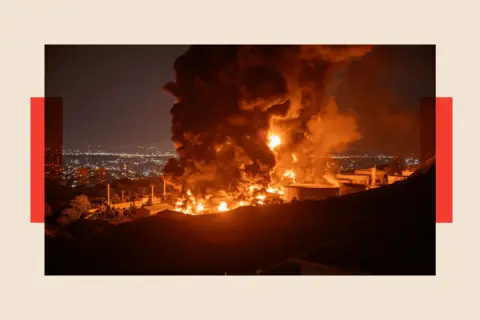 Getty Images
Getty ImagesA vast number of Iranians will singularly hold Ayatollah Khamenei, who first became leader in 1989, responsible for setting Iran on a collision course with Israel and the US that ultimately brought considerable ruin to his country and people.
They will blame him for pursuing the ideological aim of destruction of Israel – something many Iranians don’t support. They will blame him for what they perceive as a folly – his belief that achieving nuclear status would render his regime invincible.
Sanctions have crippled the Iranian economy, reducing a top oil exporter to a poor and struggling shadow of its former self.
“It is difficult to estimate how much longer the Iranian regime can survive under such significant strain, but this looks like the beginning of the end,” says Professor Lina Khatib, a visiting scholar at Harvard University.
“Ali Khamenei is likely to become the Islamic Republic’s last ‘Supreme Leader’ in the full sense of the word.”
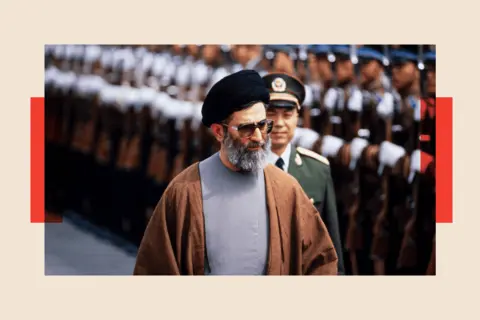 Getty Images
Getty ImagesThere have been murmurs of dissent at the top. At the height of the war, one semi-official Iranian news agency reported that some top former regime figures have been urging the country’s quieter religious scholars based in the holy city of Qom, who are separate to the ayatollah, to intervene and bring about a change in leadership.
“There will be a reckoning,” according to Professor Ali Ansari, the founding director of the Institute of Iranian Studies at the University of St Andrews.
“It’s quite clear that there are huge disagreements within the leadership, and there’s also huge unhappiness among ordinary people.”
‘Anger and frustration will take root’
During the last two weeks, many Iranians wrestled with conflicted feelings of the need to defend their country versus their deep hatred of the regime. They rallied for the country, not by coming out to defend the regime, but to look after each other. There have been reports of vast solidarity and closeness.
People in towns and villages outside urban areas opened their doors to those who had fled the bombardments in their cities, shopkeepers undercharged basic goods, neighbours knocked on each other’s doors to ask if they needed anything.
But many people were also aware that Israel was probably looking for a regime change in Iran. A regime change is what many Iranians wish for. They may draw the line on a regime change engineered and imposed by foreign powers, however.
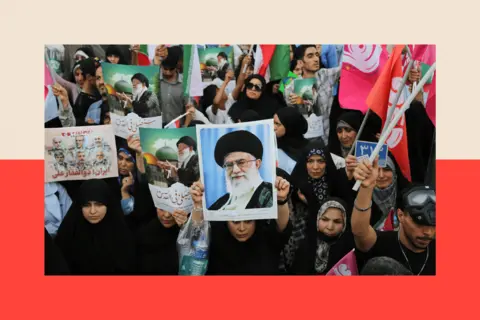 Getty Images
Getty ImagesIn his nearly 40 years of his rule, Ayatollah Khamenei, one of the world’s longest reigning autocrats, has decimated any opposition in the country. Opposition political leaders are either in jail or have fled the country.
They have been ineffectual in the establishment of any semblance of an organisation able to take over inside the country if the opportunity…
Explain It To Me Like I’m 5: After a difficult war with Israel, Iran’s leader, Ayatollah Khamenei, has been hiding for fear of being harmed, and while people are worried about their country, many blame him for the problems they face and hope for change.
Want More Context? 🔎









